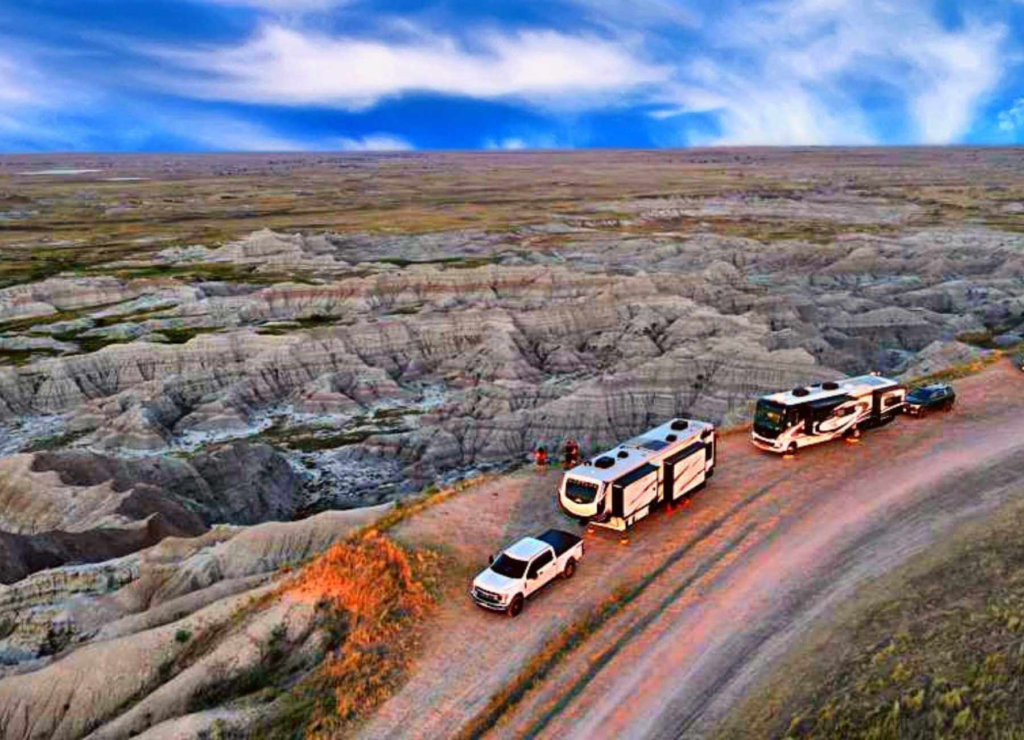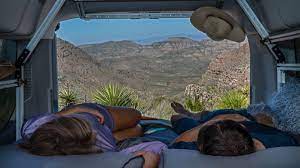Unlock the Secrets to Hassle-Free Campervan Nights
Are you ready to embark on an epic campervan adventure? Picture yourself cruising along scenic routes, chasing sunsets, and waking up to the sound of waves crashing on the shore. Owning or renting a campervan offers the freedom to explore the world at your own pace. However, one common challenge for campervan enthusiasts is finding suitable places to legally park and sleep overnight. In this comprehensive guide, we’ll delve into the ins and outs of legally parking and sleeping in a campervan. Whether you’re a newbie or a seasoned traveler, we’ve got you covered!
The Campervan Craze
Campervans have become the symbol of nomadic freedom. These versatile vehicles are equipped with all the essentials you need for a comfortable journey – a cozy bed, a kitchenette, and often even a tiny bathroom. It’s no wonder that campervan life has gained a cult following in recent years.
From solo adventurers seeking solitude in the wilderness to families looking for an affordable way to explore new places, campervans cater to a diverse range of travelers. But with great freedom comes great responsibility, especially when it comes to finding legal spots to park and sleep.
The Legal Landscape
Before you hit the road, it’s crucial to understand the legal regulations and guidelines related to campervan parking and overnight stays. The rules can vary significantly from one location to another, so it’s essential to do your research before embarking on your journey.
1. Public Campgrounds
Public campgrounds are a campervan enthusiast’s best friend. They are typically managed by government agencies and offer designated spots for campers. Here are a few advantages of public campgrounds:
- Legal and Safe: Public campgrounds are regulated and provide a safe environment for campers.
- Facilities: Many public campgrounds offer amenities such as restrooms, showers, and picnic areas.
- Scenic Locations: You’ll often find public campgrounds in beautiful natural settings, providing you with breathtaking views.
Pro Tip: Make reservations well in advance, especially during peak travel seasons, to secure your spot.
2. RV Parks

RV parks are another excellent option for campervan owners. These dedicated facilities cater specifically to recreational vehicles, including campervans. Here’s what you need to know:
- Hookups: RV parks often provide electrical, water, and sewer hookups, allowing for a more comfortable stay.
- Social Atmosphere: You’ll have the opportunity to meet fellow travelers and share stories.
- Convenience: RV parks are conveniently located near popular tourist destinations.
Pro Tip: Check for reviews and ratings of RV parks online to find the best ones for your needs.
3. Boondocking

For those seeking a more adventurous experience, boondocking might be the way to go. Boondocking refers to camping in remote, off-grid locations. Here are some key points to consider:
- Self-Sufficiency: You’ll need to be self-sufficient, as there are no amenities or facilities available.
- Leave No Trace: Practice Leave No Trace principles to minimize your environmental impact.
- Local Regulations: Research local regulations, as some areas may have restrictions on boondocking.
Pro Tip: Invest in solar panels and a reliable water filtration system for extended boondocking trips.
4. Rest Stops and Truck Stops
During long journeys, rest stops and truck stops can be a lifesaver. These areas often allow overnight parking for weary travelers. Here’s what you should know:
- Basic Amenities: Rest stops usually have restrooms, while truck stops may offer additional amenities like showers and food options.
- Safety: These locations are well-lit and monitored, providing a level of security.
- Time Limit: Some rest stops have time limits for overnight stays, so be sure to check the rules.
Pro Tip: Arrive early to secure a spot, especially if you’re planning to park at a popular rest stop.
Finding Legal Spots
Now that you’re familiar with the types of places where you can legally park and sleep in your campervan, let’s explore how to find them.
1. Online Resources
The internet is your best friend when it comes to locating legal campervan spots. Numerous websites and apps provide up-to-date information and user reviews of campgrounds, RV parks, and boondocking sites. Here are a few reliable resources:
- RV Parky: A comprehensive directory of RV parks and campgrounds with user reviews and ratings.
- Campendium: A community-driven platform offering information on campgrounds, RV parks, and boondocking spots.
- iOverlander: A global database of places suitable for campervans and overlanders.
- AllStays: Provides information on campgrounds, rest areas, and more.
2. Government Websites
Government websites and agencies often provide valuable information about public campgrounds and their regulations. Here are a few examples:
- National Park Service: Offers information about campgrounds within national parks.
- U.S. Forest Service: Provides details on campgrounds in national forests.
- Bureau of Land Management (BLM): Offers information on camping in BLM-managed lands.
3. Mobile Apps
Mobile apps can be incredibly handy while on the road. They often include features like GPS navigation to help you find nearby campervan-friendly spots. Consider downloading these apps:
- Park4Night: Offers a vast database of overnight parking spots, including user-generated content.
- The Dyrt: Provides campground and campsite reviews, photos, and tips from fellow campers.
- Roadtrippers: Helps plan your route, locate campgrounds, and discover points of interest along the way.
Local Regulations
Remember that campervan regulations can vary significantly based on your location. It’s crucial to research and adhere to local rules and regulations to ensure a hassle-free trip. Here are some common regulations you may encounter:
- Parking Duration: Some areas may have restrictions on how long you can park in one place.
- Noise Restrictions: Keep noise levels to a minimum, especially during quiet hours.
- Waste Disposal: Properly dispose of waste and follow guidelines for emptying tanks.
- Wildlife Protection: Respect wildlife and follow guidelines to protect local ecosystems.
Tips for a Comfortable Stay
To make your campervan adventure enjoyable and stress-free, consider these tips:
1. Plan Ahead
Planning is key to a successful campervan trip. Research your route, check the weather, and make reservations where necessary. Having a plan in place will save you time and ensure you have a place to sleep each night.
2. Pack Essentials
Pack all the essentials you’ll need for your journey. This includes bedding, cookware, toiletries, and emergency supplies. Don’t forget to bring entertainment, such as books, games, or a portable DVD player.
3. Stay Safe
Safety should be your top priority. Lock your campervan when you’re not inside, and be cautious when interacting with strangers. Familiarize yourself with emergency contact numbers for the areas you’ll be visiting.
4. Respect Nature
As a responsible camper, it’s essential to respect nature. Leave no trace of your visit, dispose of waste properly, and avoid disturbing wildlife. The beauty of the outdoors is something we should all strive to preserve.
5. Connect with Locals
One of the joys of campervan travel is connecting with locals. Strike up conversations at campgrounds or with fellow travelers. You might discover hidden gems and insider tips for your journey.
Where Can I Legally Park and Sleep in a Campervan?
Embarking on a campervan adventure is an exhilarating experience that offers the freedom to explore new horizons. Finding legal spots to park and sleep in your campervan is a fundamental aspect of your journey. Whether you opt for public campgrounds, RV parks, or adventurous boondocking, it’s essential to research and adhere to local regulations. With the right preparation and a spirit of adventure, you’ll unlock the secrets to hassle-free campervan nights.
Bon voyage, campervan enthusiasts! Your next great adventure awaits on the open road.
Note: This article provides valuable insights into legally parking and sleeping in a campervan. However, regulations and available resources may change over time, so it’s crucial to stay up-to-date with the latest information before embarking on your journey.
Disclaimer: This article is for informational purposes only and should not be considered legal advice. Always consult local authorities and follow their guidelines when parking and sleeping in your campervan.
